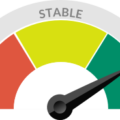
Why is OCD Detrimental to Individuals and Families?
Obsessive-Compulsive Disorder is surprisingly common among communities all over the world. It is a chronic mental health condition which can last for many years. As a mental health disorder, OCD is characterized by obsessive thoughts and uncontrollable actions. These constitute the obsessive-compulsive component of the disorder.
The thoughts are pervasive; they overwhelm the individual, intruding throughout waking hours, making it near impossible to focus exclusively on the tasks at hand. In an attempt to ameliorate these invasive ideas, the OCD sufferer performs repetitive behaviors. Unfortunately, these thoughts and actions only compound the problems even more.
What Constitutes A Compulsion?
A distinction needs to be drawn between an action, or a series of actions, and a compulsion. True to form, everyone checks to make sure that the windows have been fastened, the doors have been locked, the pets have been fed, the lights have been turned on/off etcetera. These are normal actions that need to be performed to allay one’s fears. A compulsion is not the same as an action although it is an action in response to the obsessive thoughts that an OCD sufferer is enduring. Treatment for OCD is available in many different forms. Accepted treatment regimens include following options:
- Therapy
- Medication (SSRI and SNRI)
- Surgical invasive procedures such as VNS, ECT, and implants
- Nonsurgical, non-invasive procedures such as the FDA cleared Deep TMS™
The latter option is increasingly popular among OCD sufferers around the world. Deep TMS is a non-invasive, nonsurgical, outpatient procedure that is performed without anesthesia. It requires use of a specialized helmet which sends out electromagnetic waves to targeted areas of the brain where symptoms of OCD, and/or depression manifest. By changing the neural activity of the brain, it is possible to ‘rewire’ problematic areas and alleviate symptoms of depression or OCD over time. TMS sessions typically last for 30 – 40 minutes per day, 5 days a week, for 4-6 weeks. At the end of the treatment, significant improvements, and reductions of symptoms are noted.
Can people with OCD Control Their Thoughts?
With OCD, it is impossible for the person to control their thoughts and the attendant behaviors. The individual understands and appreciates that the thoughts and actions are excessive, but there is precious little that person can do about it. Granted, the compulsions may bring about temporary relief from the anxiety, but it is short-lived. In the absence of effective treatment for OCD, the condition can worsen over time. It creates a snowball effect of anxiety, despair, and depression for the individual and those in his or her inner-circle.
At first glance, it may not appear to be a detrimental disorder. If an individual washes their hands excessively, that doesn’t necessarily adversely affect anybody else. Neither does checking to see that the door has been locked, or repetitively moving about in specific patterns. However, it is the impact that OCD has on the person vis-a-vis work, study, social, and interpersonal relationships that is so distressing. OCD sufferers can get so caught up in their own anxiety-laden world, that they cannot effectively do anything else.
What Are the Costs of OCD?
A 1995 study commissioned by the Epidemiological Catchment Area Surveys and authored by DuPont, Rice, Shiraki, and Rowland et al, found that some 2.1% of the population is affected by OCD annually. In 1990, the total cost of OCD was estimated at $8.4 billion, from a total mental illness cost of $147.8 billion. At the time, OCD made up 18.0% of the cost of all anxiety-related disorders which were estimated at $46.6 billion in total. But it’s the indirect costs of OCD that really hit home. Lost productivity in terms of workforce participation rates, death or disablement also have to be factored in to the total costs of OCD
As Africa’s most populous nation, Nigeria also has the highest caseload of depression – a serious mental health condition. As the main GADs (Generalized Anxiety Disorders), OCD and depression weigh heavily on the healthcare system in the country. According to First Bank Nigeria (FBN), Nigeria has the ill-fated reputation as the #15 highest suicide rate in the world. This, according to the World Health Organisation (WHO). In Nigeria, like many other countries where mental health awareness is slightly taboo, there is more concern about cancer than there is about depression. However, rising suicide rates across Nigeria are gathering momentum and swarming social media sites like Facebook, Twitter, Snapchat, Instagram, and the like.
According to the Federal Neuropsychiatric Hospital Yaba, approximately 25% of Nigerians suffer from one or other form of mental health conditions. These include bipolar disorder, depression, OCD, panic disorder, et cetera. That amounts to an estimated 50 million people in total. While OCD is a small component of mental health disorders within any given community, it is nonetheless a disability that needs to be dealt with. The best way to deal with mental health issues is to remove the stigma associated with them. This allows more people to come forward and seek treatment which includes therapy and therapeutics, surgical and nonsurgical procedures, et cetera.




